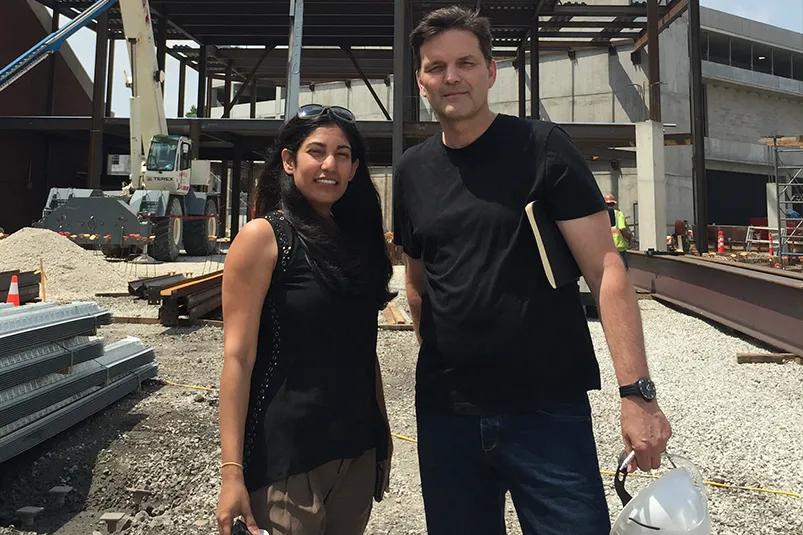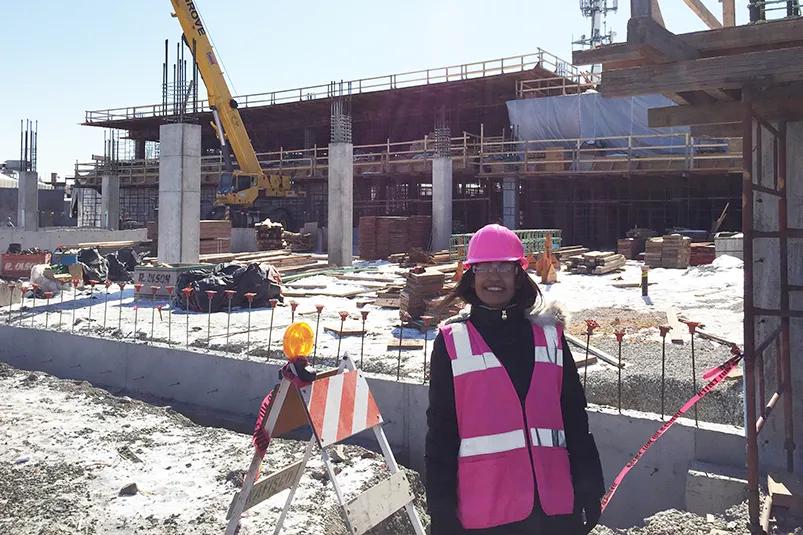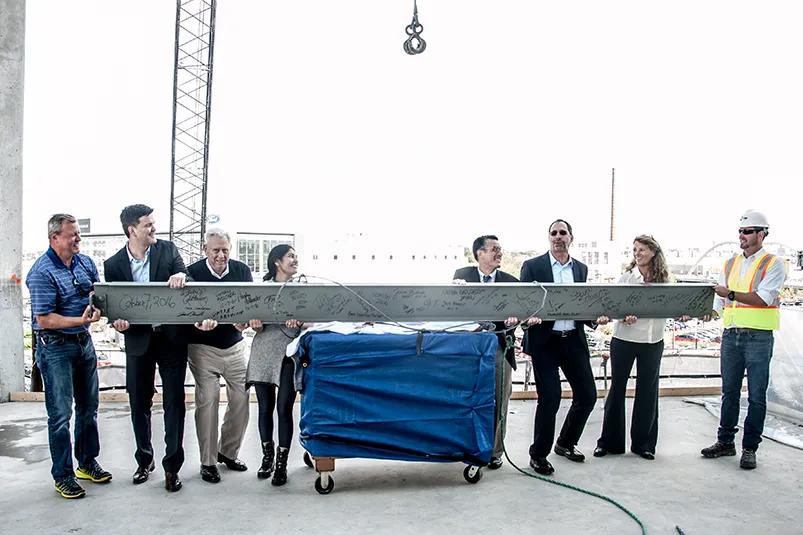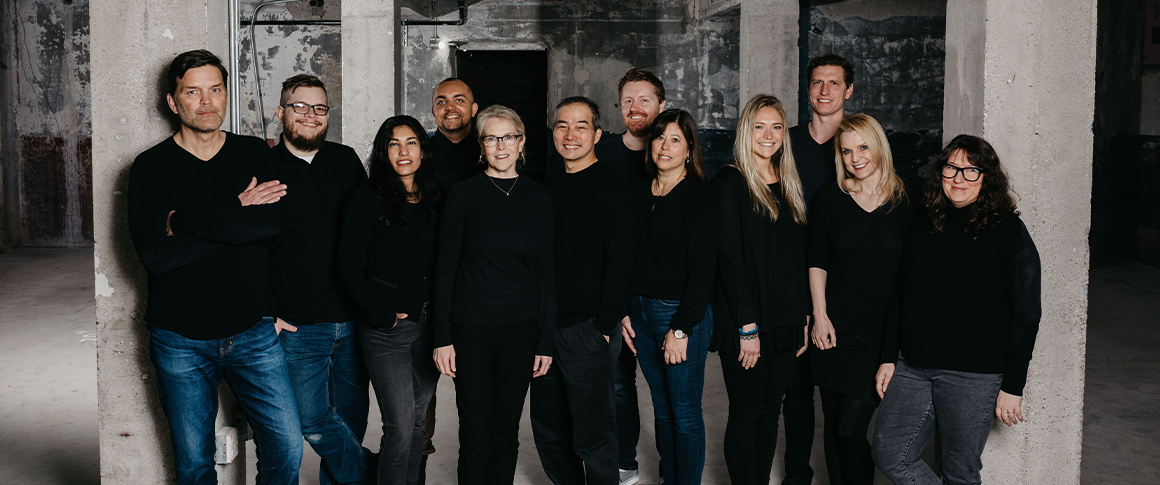The opinions expressed in this commentary are solely those of the author and do not necessarily reflect those of the National Council of Architectural Registration Boards (NCARB).
When it comes to the profession of architecture, it is important to note that as architects, we are the people shaping the future and defining the environments of tomorrow. We have an important task at hand, and to secure that, it becomes necessary to equip younger generations coming into the profession with the confidence and knowledge they need to carry the torch.
As an associate principal at DMAC Architecture, a Chicago-based architecture and design firm, I take on a firm-wide leadership role and actively seek to build effective mentoring relationships with our junior architects. With nearly 20 years of professional experience, and 14 of those being a licensed architect, I have benefited immensely from several mentors at various stages of my career who have all helped me actualize my goals.
For instance, Rodrigo del Canto, principal of Macondo Architects, played a key role in the formative years of my career as an architect. Venturing into this professional practice with an international degree, where methods of construction were widely different than those from the United States, I had a lot of learning to do. However, I was able to find my way through these hurdles with the support of his mentorship—giving me the courage to make mistakes, learn from them, and exercise sound judgment based on these experiences.

More recently, Dwayne MacEwen, principal and creative director at DMAC, has inspired me for almost 11 years with his creative rigor in pushing the boundaries of design. His unwavering trust in me has given me the confidence to grow within the firm.
With today’s time pressures and a revolving door of employees, mentorship can be challenging and require serious commitment. But I look at successful mentorships as a win for the mentee, the mentor, and the firm.
A Win for Candidates and Young Architects
For recent graduates and young architects, joining a new studio, getting a foot in the door, and moving up within the firm can seem daunting. At DMAC, we take pride in our work, and that is part of our company culture. Because our passion for design is so infectious, we typically see our junior architects actively engaged and involved. We prioritize in recognizing their strengths and providing them with opportunities to develop skills that they have a flair for, as well as helping them find an area of interest and become a champion in that area. That said, being a small firm, we try to nudge them out of their comfort zones to try out new tasks and ultimately make them well-rounded designers.

When I started out, I was not handed the most amazing projects to work on, but I’d always take them seriously and give it my all. Eventually, my superiors noted my passion for design. Now, I am in a role where I lead efforts on significant projects, and I attribute my success to the advice given by my past mentors.
With young and equally passionate architects coming into the profession, the need for mentors in architecture grows. Each emerging architecture professional will want to make a difference and will need the proper guidance and encouragement to help them be successful. And just like they’ll need help from their mentors, each mentor will need their help to grow professionally.
A Win for the Mentor
Helping candidates at my firm has helped me improve my leadership skills, and more importantly, given me a chance to reflect on my own expertise and experience. We all know the far-reaching impact of design tools in today’s world on the craft of architecture. Young architects are often the masters of these tools. They come into the profession equipped with skills in building information modeling (such as Revit, Rhino, and other new digital methods of working) that will transform and ultimately reshape architecture. Their knowledge and skills can become a valuable resource to anyone who tries to stay abreast with new developments and technological advancements.
Not to mention, open conversations with those you mentor can help pinpoint what works and what needs improvements within the firm. These discussions can provide leadership with proper insight to potentially follow up and resolve any lingering problems.
A Win for the Firm
Successful mentor relationships can help any firm, like DMAC, embrace new ideas, as well as the energy and enthusiasm of emerging architects.
A young architect seeking a mentor shows genuine interest in the work and looks to see who could provide guidance with work-related matters that may eventually lead to professional growth. They seek a good and casual rapport with potential mentors who are easily approachable, show candid interest, and are open to offering constructive criticism and guidance.

Successful mentor relationships can also contribute to maintaining a healthy work culture and high employee retention. These mentorships have helped us develop and grow talent within the studio, as we mold our processes to work more quickly and efficiently. At DMAC, we experiment, do the research, uncover the stories, challenge the expected, meet deadlines and budget, and deliver memorable experiences—and that wouldn’t be entirely possible without our young architects and licensure candidates.
Kavitha Marudadu, AIA, LEED AP, serves as associate principal of DMAC Architecture, where she spearheads projects under the guidance of leadership, while providing high-caliber design and services. For the past 10 years, she has taken the lead on notable projects, including the expansion and rebranding of Midtown Athletic Club and Hotel in Chicago along with its six sister sites across the country and Canada. Other notable projects include the 900 North Michigan Shops in Chicago and the Rivers Casino Events & Banquet hall in Pittsburgh and The Canopy Buffet in Des Plaines, Illinois.
Having grown up in Chennai, India—a dense urban city—Kavitha became interested in creating design solutions for scarce environments in the hopes of impacting everyday life.
